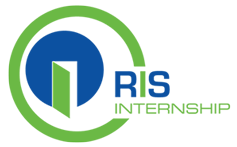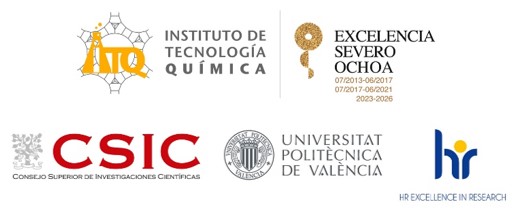Institute of Chemical Technology (UPV-CSIC)
Valencia, Universitat Politècnica de València, Avd. de los Naranjos s/n, 46022 Valencia (Spain), Spain
The Institute of Chemical Technology (ITQ) is a joint research centre created in 1990 by the Universitat Politècnica de València (UPV) and the Consejo Superior de Investigaciones Científicas (CSIC) located at the UPV Campus. The ITQ is an international reference centre in the area of catalysis, new materials and photochemistry. Due to its excellent fundamental and oriented research level and to its multidisciplinary character, the ITQ has the possibility to develop research in different disciplines having an extraordinary flexibility and capability to adapt itself to new research challenges. The ITQ has more than 200 researchers from all over the World including CSIC and UPV research professors, tenured scientists, invited professors but also engineers, technicians, administrative staff and finally many post- and pre-doctoral students. The research at ITQ is carried out through Regional, National and European funded grants and also through some projects funded by own resources. Besides, ITQ obtains a substantial part of its funding from R&D agreements with multinational companies from all around the World. Finally, it is to be mentioned that part of the revenues of ITQ come from royalties of licensed technologies developed at the institute. ITQ offers an appropriate environment for the formation of technician and scientists through doctoral theses, masters in science, final year projects, and postdoctoral stays, both in the fields of basic and applied research.
Internship possibilities
Name
- Institute of Chemical Technology (UPV-CSIC)
City
- Valencia
Address
- Universitat Politècnica de València, Avd. de los Naranjos s/n, 46022 Valencia (Spain)
Country
- Spain
VAT Number
- Q2818002D
Status of organization
- Public
What is the type of your company?
- Research organisation
Organisation acts primarily in the following raw materials sectors
- Materials science
- Recycling
- Other
Website
- https://itq.upv-csic.es/
Name
- Marta Feliz Rodríguez
E-mail address
- mfeliz@itq.upv.es
Which months can the internships take place?
- January 2025
- February 2025
- March 2025
- April 2025
- May 2025
- June 2025
- July 2025
- September 2025
- October 2025
- November 2025
- December 2025
What is the preferred duration of the internship?
- 3 months
Open positions for internships in this year
- 3
We accept
- International students
- National students
- EIT Labelled students
- 4
- 5
- 6
Internship location
- Spain
- Valencia
- Universitat Politècnica de València, Avd. de los Naranjos s/n, 46022 Valencia (Spain)
During the internship, company is able to offer to the intern(s):
- None of the above
Is laboratory work included?
- Yes
Preferred educational background of the intern(s)
- ecology/biology
- chemistry
- environmental engineering
Education (other)
- Chemical engineering
Required skills and competences
- Computer skills, English, laboratory skills
Interns assignments/tasks
- Position 1: Tentative topic of the master thesis: Metalorganic Building Blocks for Hierarchical Assembly of Hybrid Materials. Synthesis and Characterization. Short description: Metal-organic frameworks are a well-identified class of porous polymeric material, consisting of metal ions linked together by organic bridging ligands, and are a new development on the interface between molecular coordination chemistry and materials science. A range of novel structures would be prepared which feature amongst the largest pores known for crystalline compounds, very high sorption capacities and complex sorption behaviour. The development of synthetic approaches to these materials and investigations of their properties will be considered through the preparation of proper builder units. Keywords: Porous Materials; Hybrid Materials; Metalorganic frameworks; Solvothermal synthesis Preferred educational background of the intern : chemistry Industrial supervisor: Urbano Diaz Position 2: Tentative topic of the master thesis: Group VI metal clusters and derived structured hybrid materials for environmental remediation and catalysis Short description: Incorporation of selected group VI metal cluster photoactive building blocks into organic or inorganic supports with selected properties (conductor, porous, …) for the generation of solar fuels (H2, MeOH, …) and photocatalytic removal of pollutants present in the air and in water. Keywords: Metal cluster, photocatalysis, green chemistry, decontamination Preferred educational background of the intern: chemistry, environmental engineering Industrial supervisor: Marta Feliz Position 3: Tentative topic of the master thesis: Development of carbon nitrides based materials and composites for different applications (catalysis, photo- and electro-catalysis, optoelectronic, etc.) Short description: Carbon nitride (g-C3N4) polymers have garnered considerable attention from the environmental and energy sectors due to their low cost, low toxicity, unique structural and physicochemical properties, and their high physical and chemical stability; they find application as catalysts, as electrodes, as optoelectronic materials, etc. These materials primarily composed of carbon and nitrogen can be synthesized using a variety of methods, but thermal polymerization employing low-cost raw materials containing C and N predominates. This study aimed to synthesize g-C3N4 supported on metal-containing mesoporous materials by evaluating the effect of metal on g-C3N4 formation. Keywords: Carbon nitrides; g-C3N4 supported materials; Metal-g-C3N4; Mesoporous materials Preferred educational background of the intern: chemistry Industrial supervisor: Marcelo E. Domine Position 4: Tentative topic of the master thesis: Design of novel hybrid nanomaterials for cancer immunotherapy Short description: To design hybrid systems containing biocompatible nanoparticles and metallocompounds capable of producing synergistic effects to improve current limitations in cell therapies. Keywords: Nanomedicine; Cancer immunotherapy; Molecular imaging Preferred educational background of the intern: chemistry Industrial supervisor: Javier Hernández Gil Position 5: Tentative topic of the master thesis: Optical Chirality in Nobel Organic-Inorganic Hybrid Materials Short description: Chirality adds a twist to the frontiers of nanotechnology in both fundamental research and advanced applications. A prime example is the distinction between enantiomers in food and drugs: materials with identical composition but different helical directions can alter taste from sweet to bitter and their pharmaceutical effects from helpful to harmful. This proposal aims to characterize a new generation of chiral enantiomers in hybrid nano-/micro-materials, such as metal clusters or hybrid perovskites, which combine the excellence of their organic and inorganic counterparts. These materials have been identified as promising candidates for a wide range of applications, from sensing to energy harvesting, with chiral structures further enhancing their properties and application possibilities. The student will employ high-tech methods based on optical characterization to determine the chiral properties of these nano/micro-materials. Leveraging their photoelectric response, these materials could become the core of a new generation of chiral sensors, with applications in pharmacy, food industry and environmental monitoring. Keywords: Chirality, Enantiomers, Nanotechnology, Metal Clusters, Hybrid Perovskite, Chiral sensors, Optical characterization Preferred educational background of the intern: chemistry Industrial supervisor: Fernando Ramiro Manzano
Supervisors
- Urbano Díaz, Marta Feliz, Marcelo E. Domine, Javier Hernández Gil and Fernando Ramiro Manzano
About supervisors
- Dr. Urbano Díaz has been working as a CSIC Scientific Researcher at the Institute of Chemical Technology (ITQ) since 2004. He studied Chemical Sciences at the University of Valencia and obtained his doctorate in 2002 in the field of delaminated zeolites in the Polytechnic University of Valencia. He obtained a Marie Curie post-doctoral fellowship developed at EniTecnologie (Eni SpA) in Milan, Italy, working on catalytic applications of hybrid porous materials. He is working in the field of multi-functional hybrid materials, lamellar solids, nanocomposites and biomaterials with catalytic and nanotechnological applications. // Dr. Marta Feliz is a CSIC Tenured Scientist at the Institute of Chemical Technology (ITQ) since 2009. She studied Chemical Sciences and completed her PhD at the Universitat Jaume I (Spain, 2003) in the synthesis of molybdenum and tungsten cluster materials. She was specialized in the field of computational chemistry after 2 postdoctoral stays at ICIQ (Spain) and ICGM (France) during 2004-2007. Currently, she works in the design and development of transition metal-based materials, their reactivity and photocatalytic applications in the fields of fine chemistry, green fuels and environmental concerns. // M. E. Domine completed his PhD at the Polytechnic University of Valencia (Spain) in 2003, and postdoctoral studies at the IRCELYON-CNRS (France, 2005-07). Since 2009, he re-joined the Instituto de Tecnología Química (UPV-CSIC) of Valencia, Spain as Scientific Researcher of CSIC. His current research involves the synthesis and characterization of solid materials for different applications, such as catalysts in sustainable chemical processes for renewable raw materials (i.e. biomass) transformations into fuels and valuable chemicals. // Javier Hernández Gil is a María Zambrano’s program distinguished researcher at ITQ. As a result of various stays in top-level international centers (Memorial Sloan Kettering Cancer Center, Imperial College London,...) he has extensive experience in various fields of Chemistry, such as inorganic/organic Chemistry, Chemistry of materials and/or radiochemistry. During the last years, his research interests have focused on the development of new strategies to improve the early diagnosis of cancer and/or overcome the current limitations in the treatments against this disease. // Fernando Ramiro Manzano is a Tenured Scientist of the CSIC since November of 2021. He holds a degree in Industrial Engineering, Master equivalent in Telecomunications and PhD defended in Applied Physics (Universitat Politècnica de València, 2008). He worked as Marie Curie PostDoc fellowship at University of Trento (Italy, 2011) and assistant professor (2013), and in 2017 he returned to Valencia ITQ and ICMOL. His current research is focused in Photonics (microspherical resonators, self-assembled colloidal structures, on-chip and 2D photonics) and Material Sciences (mainly working and collaborating in the field of chemistry)
Interview with the candidates
- Yes
Has your organisation already participated?
- Yes
Year/programme of participation
- This programme

